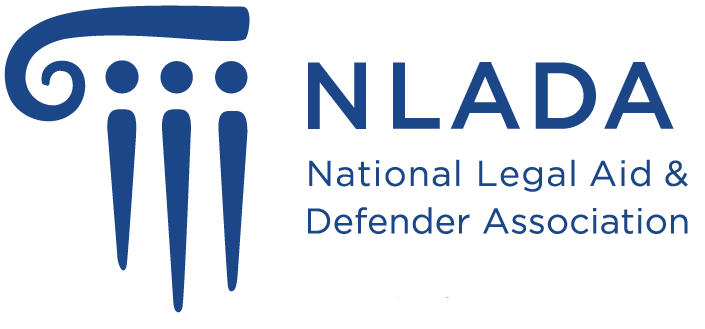The Office of the Appellate Defender (OAD) in New York City is partnering with NLADA VISTA for a third year of building partnerships to strengthen holistic defense. Alexandra Macdonald started service at OAD in August to build up their data and tracking systems. Read on to learn why her service matters to the NYC community.
New York City is often touted as a place of multi-culturalism, tolerance, and endless opportunity, as if the city is somehow exempt from the United States’ history of structural inequality and racism. The reality, though, is that New York City very much fits in with that history, much of which can be seen through the lens of the criminal legal system’s policies of policing and mass incarceration. It is within this framework that the Office of the Appellate Defender (OAD) in New York City provides services to indignant New Yorkers in need.
The criminal legal system in New York City operates through the New York Police Department (NYPD), the court system, local jails, and upstate prisons. The NYPD is the largest police force in the country, and has a long history of racist policing tactics, from “broken windows” policing to “stop and frisk.” Under “stop and frisk,” (a policy struck down by a judge in 2013) police officers were permitted to stop and detain someone for questioning on the street if they had “reasonable belief that the person is or has been involved in a crime,” and could search that person if they believed he or she was armed. As a result, between 2002 and 2013, more than 5 million people were stopped and, in 2009, Black and Latino New Yorkers were nine times more likely to be stopped than their white counterparts (Southall and Gold). The systematic racism engrained in the NYPD is also apparent in the 2014 murder of Eric Garner, a Black man who was killed by Officer Daniel Pantaleo, and in the violent response of the NYPD to protestors in the wake of the George Floyd murder.
The New York State court system is a bit unusual—the Court of Appeals is the highest court in the state. While in New York City, misdemeanor cases go through the New York City Criminal Courts, felony cases are heard in the Supreme Courts. Upon appeal, felony cases are argued in the Appellate Divisions of the Supreme Court. While OAD does its best to represent its clients, the courts operate to uphold the status quo, and on the whole do not have empathy for the complex life experiences of clients.
New York City is home to the second largest county jail facility in the United States: the notorious Rikers Island. 79% of the people incarcerated at Rikers Island have not been convicted of a crime, and instead are awaiting trial (“Incarceration FAQ”). Rikers is known for its pervasive violence. Between August 2014 and January 2015, the New York Times tracked 62 cases in which correctional officers seriously injured an inmate at Rikers (Winerip and Schwirtz). If a defendant is convicted of a crime, particularly a felony, they are transferred to a prison, likely in Upstate New York. According to the Vera Institute of Justice, in 2018 there were 47,361 people in prison custody in New York State (“Incarceration Trends in New York”). The New York State prison population is disproportionately made up of people of color. Black people make up only 15% of the state population, but 48% of the prison population (“Incarceration Trends in New York”).
It is obvious from this brief discussion of the criminal legal system in New York State that it operates unequally, devoid of humanity, and without real interest in creating a “just” society.
OAD was founded in 1988 in New York City, to provide appellate legal defense to poor people. A core principle of OAD’s founding is to provide holistic defense. In fact, the office was the first appellate defense office in the nation to have a full-time social worker on staff. The office has a dedicated team of staff who not only care for the legal matters of clients’ cases, but personal troubles as well. Given that OAD only manages the appeals portion of clients’ cases, clients are likely to be incarcerated in Upstate New York when attorneys begin to represent them. In prison, clients face health problems, unfair treatment from correctional officers, and other issues. OAD documents such issues and advocates for fair treatment for clients. Furthermore, OAD is unique among similar offices in that it assists clients in parole hearing preparation. In New York, many people who are incarcerated are all alone when it comes to preparing a parole packet and presenting their case to the parole board. OAD reaches out to clients’ family, friends, and other contacts, requesting them to write letters, and creates a packet of those letters and a story to present to the parole board. OAD staff also coach clients through answers to questions that the parole board may ask.
OAD engages with the community through connecting clients to various community organizations, including those that assist clients find housing, employment, and medical treatment. While OAD prides itself on its efforts to provide holistic representation, it can be difficult for the office to stay connected to clients and family-members as it would like. Part of that is because attorneys, paralegals, and social workers have limited opportunities to meet clients in person due to the distance between New York City and the upstate correctional facilities. Another reason is that the appeals process can be incredibly long-winded and frustrating. It can be difficult to communicate to clients and their family members legal procedure and terminology, and to explain why there is so much time between updates on cases.

